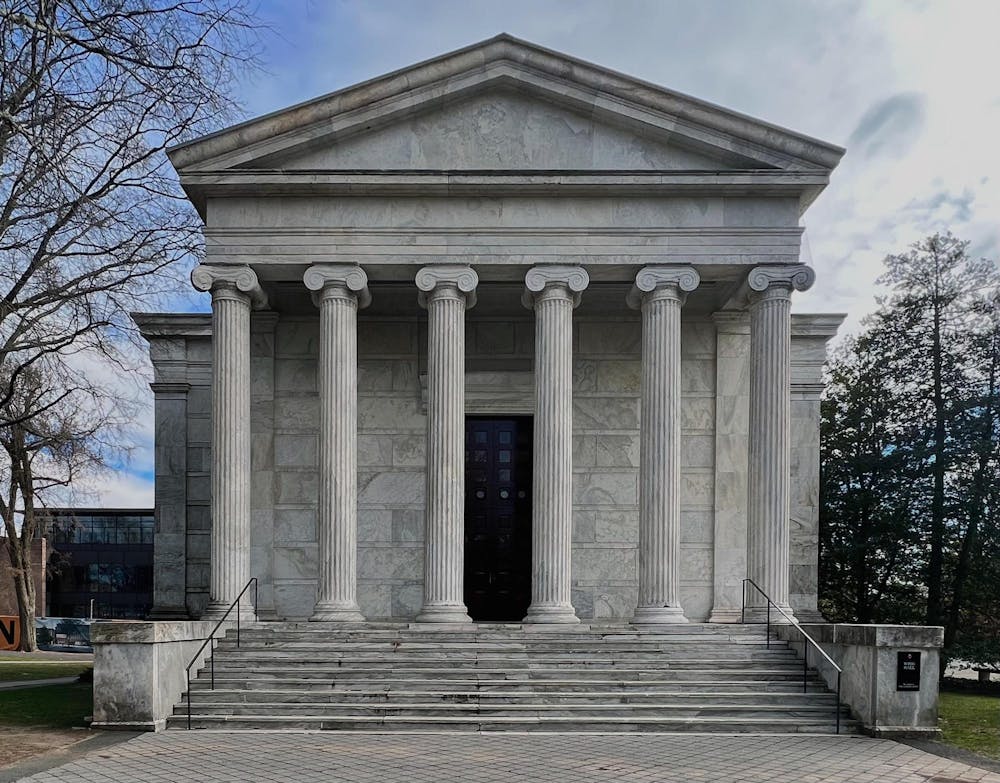The American media is obsessed with the Ivy League.
One recent example of this phenomenon: A New York Times piece by MIT professor Daron Acemoglu put forth a bold and compelling argument for how liberalism can better serve as a means to “speak truth to power” and challenge the right-wing front. Although Acemoglu’s argument focused primarily on establishment liberalism, it continually pointed fingers at elite universities like Princeton as adversarial actors impeding the path of liberal progress.
Throughout his article, Acemoglu repeatedly castigates both the “educated elites” and the “elite institutions” which enable and empower them. He levies numerous critiques about the overwhelming homogeneity among their ranks, their meteoric rise to the economic top, and the façade of meritocracy. My initial impression was that Acemoglu’s piece represents a salient and culturally relevant critique of institutions, but then again, I’ve read this type of article many times before.
Acemoglu’s argument is certainly nuanced, but not necessarily unique. His critiques reflect an ever-fashionable narrative in national media — that liberalism has a critical fault, and that shortcoming is elitism as personified by Ivy League universities. However, by putting too much emphasis on Ivy League schools themselves as the proxy for “educated elites," we risk losing sight of the larger systems of elitism that drive the Ivy League and so much more.
But when did America become so bedeviled by the educated elite? For centuries, Ivy League colleges existed in privileged isolation as finishing schools for generations of wealthy white men. This popular perception of the Ivy League as a place of the elites was only exacerbated in the decades following World War II, when the return of veterans prompted a significant expansion of collegiate enrollment programs and degree accessibility. The increase in the number of people going to college, nearly half of whom were vets, elevated attention toward such institutions at the pinnacle of academic hierarchy.
Degree inflation, or the perceived “worth” of a bachelor’s degree, has also significantly impacted fixation on the Ivy prestige. In 2024, the average degree was determined to have a median lifetime return on investment of around 1,042%, a marked change from the 1990s only three decades prior. Factors like these have propelled our cultural fascination with elite institutions, while simultaneously rendering them the object of our collective blame and condemnation.
Today, 69% of American citizens report that the educated “political and economic elite don’t care about hard-working people.” As “elite overproduction” has skyrocketed, discourse and negative sentiments against elites have increased among the broader public accordingly. It is indisputable that educated elites are the subject of national critique, well beyond the scope of Acemoglu’s piece.
Across the political spectrum, from the liberal enclaves of the New York Times to the conservative reserves of Fox News, American media consistently uses these eight private research universities as its proxy for the “educated elite” en large. At present, much of American discourse has come to center on opposition to the Ivy League as a birthplace of exclusive elitism that pits it against the greater public, the ‘hard-working people.’ But the Ivy League is not a birthplace. When we perceive it in this manner, we fail to contend with the underlying systemic issues that enabled the birth of the Ivy League in the first place — and which continue to perpetuate elitism far beyond it.
As a result, efforts for genuine progress are inherently undermined by our misconstrued understanding. We contrive political or social movements around defunding or otherwise dismantling elite institutions. We envision our enemy concretely as Harvard or Princeton, rather than abstractly in the systems of class privilege and economic inequality. We fail to realize that, as my colleague Ava Johnson has excellently argued, elite universities are “a symptom, not a cause” of an unequal society. Although elite institutions are merely a microcosm of a prejudiced social system, our cultural obsession with elite institutions means that we all too often mistake them for the system itself.
It’s time to de-center the Ivy League and recenter class privilege in our collective narrative. As we continue to challenge and dissect the unjust systems of classism that underpin modern America, we mustn’t lose the forest for the trees.
Wynne Conger is a sophomore and prospective SPIA major from Bryn Mawr, Pa. She can be reached by email at wc2918[at]princeton.edu. Her column “Popping the Bubble” runs every three weeks on Sunday. You can read all of her columns here.









